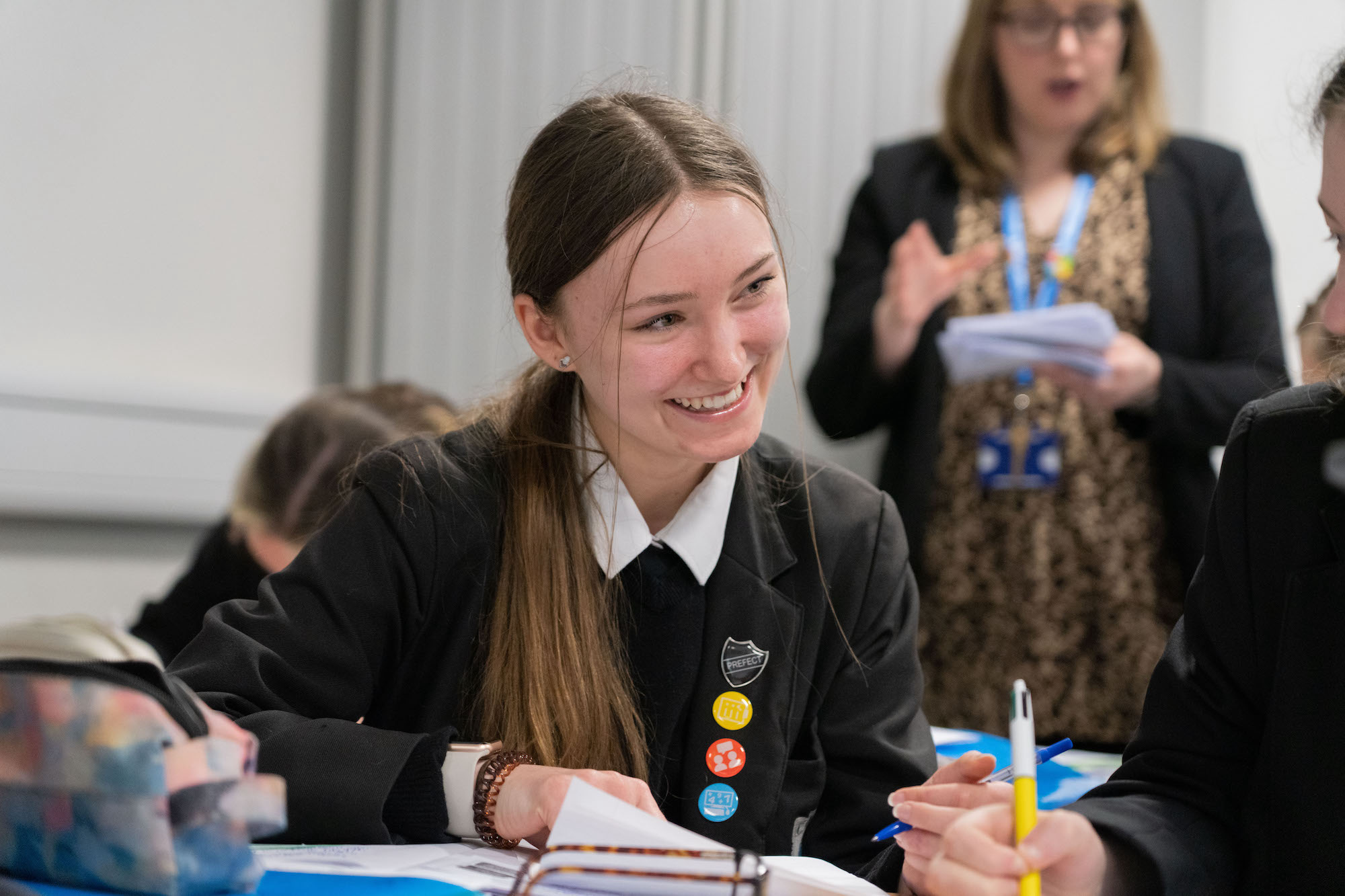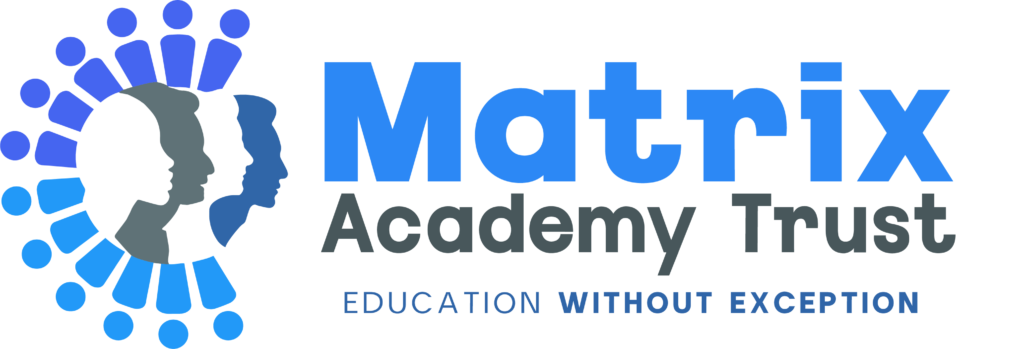
Matrix Loves
Languages.
Languages open doors for our young people, giving them the qualifications and skills required to access aspirational destinations.
Because of this, the trust is aligned to the government's vision that, by 2025, 90% of pupils will sit a GCSE in a language.
Our Trust vision is simple: every child deserves an exceptional education. We believe that an exceptional education is one which opens doors for our pupils in the future. The curriculum in each of our schools expects every child to maintain a broad range of subjects at Key Stage 4, including those that they find personally challenging.
We know that developing pupils' international outlook and cultural capital are vital for us to secure the best possible future for every child. We therefore place great importance on the study of a foreign language to GCSE for all children within our Trust. We are driven by evidence in everything that we do as a Trust, and the research tells us very clearly that a GCSE in another language helps children access Higher Education or other next steps in employment or training.
Studying a foreign language provides an insight into other cultures and can open the door to travel and employment opportunities. They can also broaden pupils' horizons, helping them flourish in new environments. Our wider curriculum offer includes chances for pupils to experience life in other countries, including tailoring support to overcome individual barriers to travel, such as cost; we always apply for funding to give pupils from disadvantaged backgrounds opportunities they may not otherwise have.
We know that pupils who study a language feel the benefits across the curriculum, whether that's understanding English better through learning ambitious vocabulary in a foreign language or using their critical thinking skills in Maths or humanities.
We complement the teaching of languages and our work to develop pupils' international outlook by giving them foreign travel opportunities, including through the Turing Scheme.
Finally, we know that employers value languages, as they are increasingly important to make sure the UK can compete in the global market. We want all children, but especially those in the most disadvantaged communities served by our Trust, to have the best possible employability options.
Languages open doors for our young people, giving them the qualifications and skills required to access aspirational destinations.
Because of this, the trust is aligned to the government's vision that, by 2025, 90% of pupils will sit a GCSE in a language.
Our Trust vision is simple: every child deserves an exceptional education. We believe that an exceptional education is one which opens doors for our pupils in the future. The curriculum in each of our schools expects every child to maintain a broad range of subjects at Key Stage 4, including those that they find personally challenging.
We know that developing pupils' international outlook and cultural capital are vital for us to secure the best possible future for every child. We therefore place great importance on the study of a foreign language to GCSE for all children within our Trust. We are driven by evidence in everything that we do as a Trust, and the research tells us very clearly that a GCSE in another language helps children access Higher Education or other next steps in employment or training.
Studying a foreign language provides an insight into other cultures and can open the door to travel and employment opportunities. They can also broaden pupils' horizons, helping them flourish in new environments. Our wider curriculum offer includes chances for pupils to experience life in other countries, including tailoring support to overcome individual barriers to travel, such as cost; we always apply for funding to give pupils from disadvantaged backgrounds opportunities they may not otherwise have.
We know that pupils who study a language feel the benefits across the curriculum, whether that's understanding English better through learning ambitious vocabulary in a foreign language or using their critical thinking skills in Maths or humanities.
We complement the teaching of languages and our work to develop pupils' international outlook by giving them foreign travel opportunities, including through the Turing Scheme.
Finally, we know that employers value languages, as they are increasingly important to make sure the UK can compete in the global market. We want all children, but especially those in the most disadvantaged communities served by our Trust, to have the best possible employability options.
Languages Today – Our trust's approach to developing our pupils' international outlook has been spotlighted in Languages Today magazine (published by the Association for Language Learning) in a piece written by School Improvement MFL specialist Felicity Callanan and Director of School Improvement David Lowbridge-Ellis MBE. This followed a conference presentation at the 2024 Language World conference delivering by Felicity.

